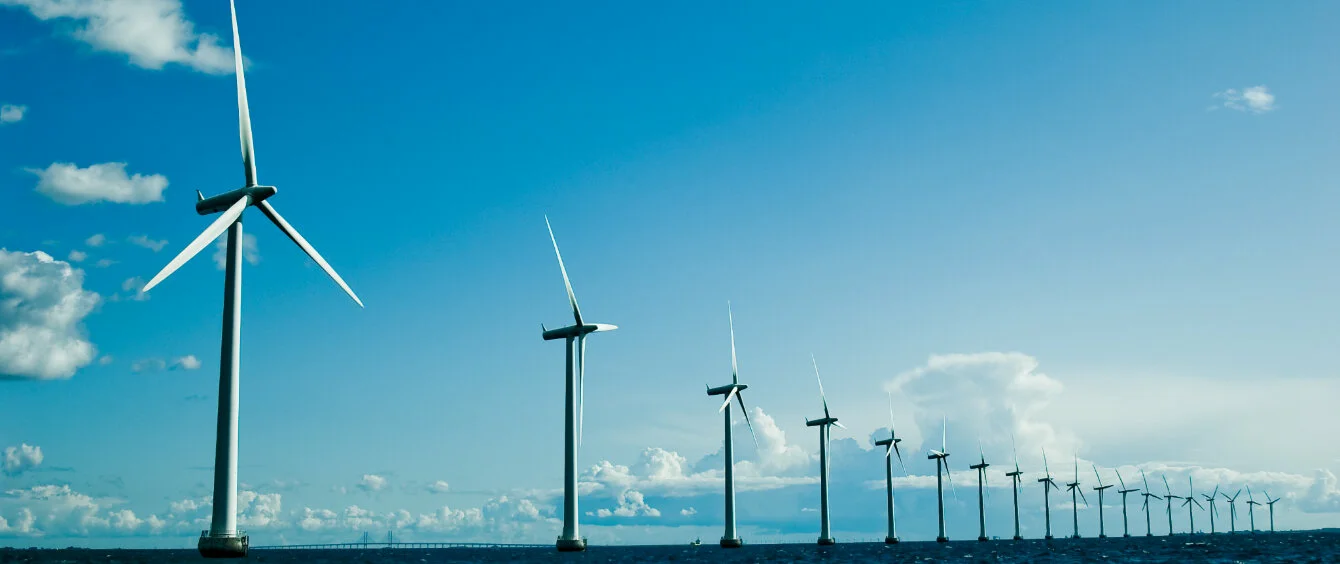Climate protection has dominated the headlines in 2021 like no other topic. To achieve the Paris 1.5 degree goal, 114 countries and the EU agreed new national determined contributions (NDCs). Many intend to accelerate the pace of the energy transition, including Germany, the United Kingdom and the USA, which re-joined the Paris Climate Agreement under President Joe Biden. However, one must ask oneself whether government programmes can reduce greenhouse gas emissions enough to limit global warming to clearly below two degrees. The authors of the Climate Change Performance Index 2022 believe that only some of them go far enough. They examined the plans of 59 countries, which are responsible for over 90 percent of all emissions, and of the EU in detail and created a performance ranking on that basis.
Experts from the NGOs Germanwatch, New Climate Institute and Climate Action Network International measured performance in the following four categories: emissions, renewable energy, energy consumption and climate policy. The more points received by a country in each category, the higher its performance was ranked with respect to hitting the Paris climate targets. However, as none of the countries achieved a “very high” score, the podium places remained vacant, as they did after the previous year’s assessment. Denmark leads the ranking with a points total of 76.92, followed by Sweden and Norway. Four G20 nations racked up a “high” performance: the United Kingdom (7th), India (10th), Germany (13th) and France (17th). This means that Germany fared better than it has in the last eight years. The Netherlands also trended upwards in 2021, improving by ten spots to 19th overall.
On the flipside, the EU wound up a mere 22nd, slipping six positions compared to the prior year and just attaining a “medium” score. One reason is that Slovenia, the Czech Republic, Poland and Hungary scored “very low” and are classed among the poorest performers. The USA, Russia, Australia and Canada also placed at the lower end of the scoring table. The United States is the only nation with a “very low” ranking to improve on last year’s result, moving up six spots. Although Biden seeks to take a strategic approach to protecting the climate, experts still see political hurdles including a lack of consensus in Congress. Their verdict: In sum, the measures are not sufficient to hit the reduction target for 2020.
United Kingdom: emissions reduction leader
The top three spots remain unoccupied in the greenhouse gas emissions category as well. The leader of the pack below the podium is the United Kingdom where lower emissions in the energy sector in particular had a positive effect on the nation’s result. Following close behind is Sweden as the best EU member state. Malta (9th), Denmark (11th) and Germany (15th) are three further countries awarded a grade of “high”. At the other end of the scale are 16 nations with very low ambitions in relation to CO2 reductions, including China, the USA, Australia and Canada.
A similar picture is painted by the expansion of renewable energy. There’s no way around Norway, the only country to receive a “very high” performance ranking. Five EU member states are among the top ten: Denmark, Sweden, Finland, Latvia and Croatia. Altogether, the EU was awarded a medium score, winding up in 26th spot.
Europe’s community of nations fares worse only in terms of energy consumption, finishing a merely 29th this time around. Only Malta and Greece score “high”. The experts actually rate Belgium, Luxembourg and Finland “very low,” as they do seven G20 nations, with Canada coming in dead last. One contributing factor is that energy consumption suffered a massive collapse worldwide at the outbreak of the COVID-19 pandemic in 2020. It went on a strong upward trend in 2021, after which nearly all countries dropped spots in their rankings compared to the previous year.
Ambitious goals aren’t enough
Assessments in the last category were much more future-oriented. This involved the authors scrutinising the national emission reduction goals – actually breaking them down by sector – and the packages of measures forming the paths to these targets. In Luxembourg and Denmark, two EU member states have the most ambitious plans of the 59 countries assessed. The Netherlands, France, Finland and Sweden are also part of the lead pack, as are the United Kingdom and China. Finishing 19th and 20th, both Germany and the EU wound up just behind the top performers. The countries of Eastern Europe again found themselves at the back of the peloton, with Australia bringing up the rear.
The bottom line: If the countries achieve their goals, the 1.5 degree target will at least remain within reach. In their closing remarks, however, the experts underscore that a ranking in the lead group should not be taken as an excuse to rest on one’s laurels. They find that the speed at which measures are taken to protect the climate and bring about the energy transition must pick up appreciably the world over.
Photo credit: © shutterstock, Eugene Suslo
